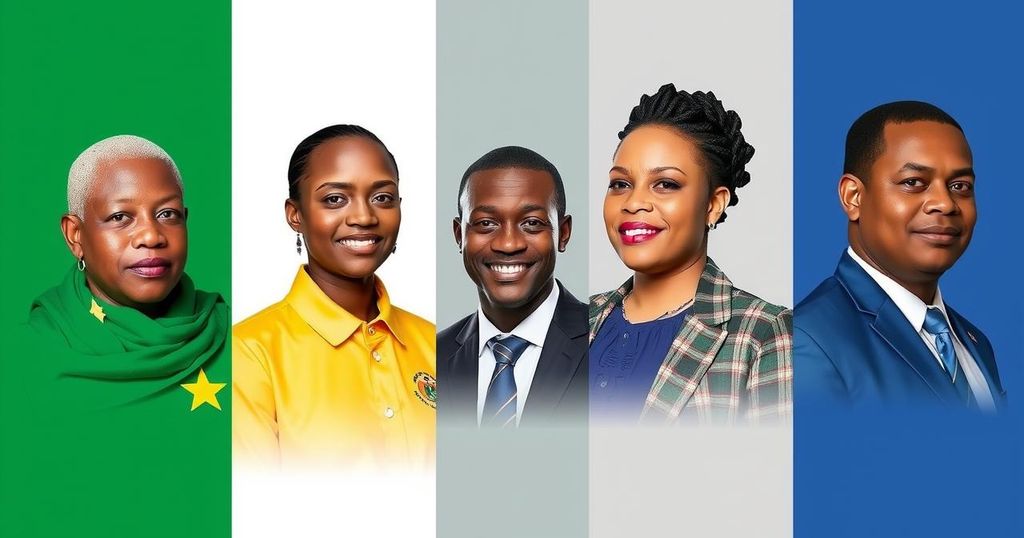Ghana’s Presidential Elections: Key Candidates and Critical Issues at Stake

Ghana is set to elect a new president on December 7, 2024, amidst economic challenges and rising living costs. The main candidates are Mahamudu Bawumia of the NPP and John Mahama of the NDC. With 12 candidates vying for the presidency, the focus is on economic stability and governance, as Ghanaians prepare for the ninth general election since the restoration of multiparty democracy in the 1990s.
Ghana is poised for a significant transition as it approaches its presidential elections scheduled for December 7, 2024. The race is predominantly between two candidates: Mahamudu Bawumia of the New Patriotic Party (NPP), currently the vice president, and former president John Mahama of the National Democratic Congress (NDC). Bawumia, an economist educated at Oxford, seeks to make history as Ghana’s first Muslim president, while Mahama aims for a political resurgence after previously serving as president from 2012 to 2016.
On election day, nearly 18.8 million registered voters will participate in the ninth general election since Ghana reinstated multiparty politics in the early 1990s. This election day will feature simultaneous voting for both the presidential and parliamentary elections across 275 constituencies. Although there are 12 candidates for the presidency, historically, only nominees from the NDC or the NPP have achieved electoral victory since the revival of multiparty democracy.
Economic issues dominate the electoral landscape, particularly concerns over the rising cost of living and inflation rates that soared to 54% in late 2022. Reports indicate that approximately 850,000 Ghanaians were driven into poverty due to escalated prices, exacerbating an already dire economic outlook. The impact of illegal gold mining has also emerged as a focal point of contention, with both major parties pledging to address the environmental damage caused.
The electoral framework mandates that a candidate must secure over 50% of votes to win in the first round; otherwise, a run-off will be held among the top two candidates. Since 1992, Ghana’s elections have been characterized by competitiveness and relative peace, gaining commendations from observers for their management and integrity. Historically, election results have been announced promptly, with expectations set for the electoral commission to declare the outcomes by December 10.
Ghana’s upcoming elections represent a critical juncture in the nation’s political landscape, especially following the tenure of President Nana Akufo-Addo, who is completing his mandatory two terms in office. The vice president, Mahamudu Bawumia, and the former president, John Mahama, embody the two dominant political factions in Ghana—the NPP and the NDC—whose rivalry has defined national politics over the last three decades. With pressing economic challenges at the forefront of voters’ concerns, the election is poised to reflect the populace’s demand for solutions amidst rising living costs and unemployment, particularly among youth. Given Ghana’s history of timely and peaceful elections, the upcoming vote is anticipated to draw significant local and international attention, both for its potential outcomes and for the issues that are expected to shape electoral behavior.
In summary, the upcoming December elections in Ghana are characterized by a contest between Mahamudu Bawumia and John Mahama, amidst pressing economic concerns and critical issues surrounding governance and the environment. The results of this election will not only determine the next president but also reflect the electorate’s response to the prevailing economic climate and other vital national challenges. As Ghana prepares to cast its votes, the world watches closely, recognizing the implications of its democratic processes and electoral practices.
Original Source: www.bbc.co.uk







